Iran Claims US Sanctions Over Missile Program Violate JCPOA
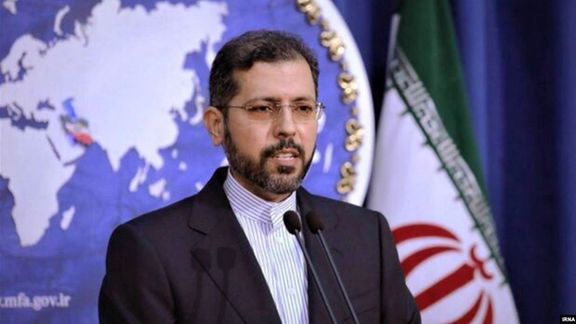
Iran accused the United States on Thursday of violating a United Nations resolution after Washington sanctioned actors for helping Tehran’s missile program.

Iran accused the United States on Thursday of violating a United Nations resolution after Washington sanctioned actors for helping Tehran’s missile program.
UN Security Council Resolution 2231 enshrined the 2015 nuclear deal that Iran and world powers have sought to revive through negotiations in Vienna for the past 12 months.
The US continues to violate a Security Council resolution that enshrined the 2015 nuclear deal (JCPOA), despite its claims of wanting to revive the pact, foreign ministry spokesman Saeed Khatibzadeh said.
On Wednesday, the United States applied sanctions on a procurement agentin Iran and his companies for their role in supporting Tehran's ballistic missile program. The JCPOA removed nuclear-related sanctions and left others in place.
The move came after a destructive missile and drone attack by Iran-backed Houthi forces on Saudi oil installations last week. The US accuses Iran of supplying drones, missiles and other weapons to Houthis.
"This move is another sign of the US government's malice towards the Iranian people, as it continues the failed policy of maximum pressure against Iran," the spokesperson added.
The talks were close to agreement in early March until Russia made last-minute demands of the United States.
The White House said on Wednesday that the new sanctions would not derail nuclear talks but will remain in place regardless of whether an agreement is reached.
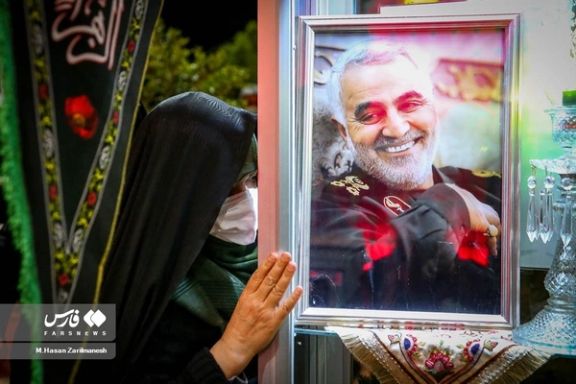
Washington wants Iran to stop threats against US officials for the killing of Ghasem Soleimani if it wants its Revolutionary Guard to be removed from a terrorist list.
The United States will not remove the Revolutionary Guard (IRGC) from its list of Foreign Terrorist Organizations (FTO) unless Tehran pledges to cease its death threats against US officials for the killing of the IRGC's Ghasem Soleimani, a source close to the Vienna talks has told Radio Farda, the Persian service of the US government funded Radio Free Europe.
Iran's Supreme Leader Ali Khamenei, President Ebrahim Raisi, and IRGC officials have repeatedly vowed to avenge Soleimani's death.
“Trump and others like him will be forgotten and lost in the dustbin of history, of course after paying for their crimes in the world," Khamenei said on January 1, two days before the anniversary of Soleimani's killing in Baghdad in January 2020 on former US President Donald Trump's orders.
In a televised speech two days later, Raisi said that "Muslims" would take revenge" if Trump and former Secretary of State Mike Pompeo were not "tried in a fair court for the criminal act of assassinating Soleimani."
The source who spoke on condition of anonymity told Radio Farda that Tehran's last-minute demand for delisting the IRGC is currently the biggest hurdle in the way of an agreement to restore the 2015 Iran nuclear deal, Joint Comprehensive Plan of Action (JCPOA).
Soleimani, who was Iran’s top military and intelligence operator outside its borders, was in charge of supporting and organizing militant proxy forces, including the Lebanese Hezbollah and Iraq Shiite militia groups that have repeatedly attacked US forces.
The European Union's top diplomat Josep Borrel said Monday that talks were stuck by Tehran due to new demands that weren’t part of the JCPOA, such as the status of the IRGC, after a hurdle thrown by Russia was overcome. "It’d be a shame not to reach some sort of an agreement when we're so near to reaching one,” Borrel told the European Parliament
The source also told Radio Farda that the US has asked Iran to pledge that it will not threaten and harm US citizens and facilities in the region.
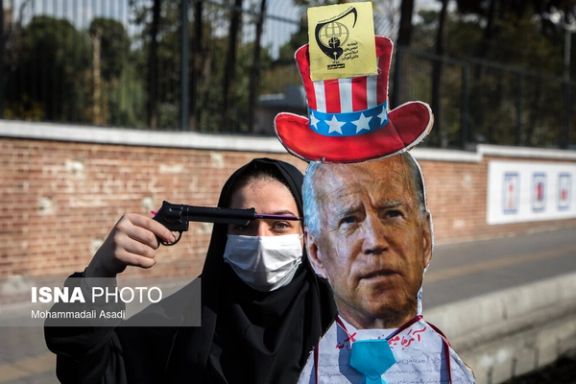
According to Radio Farda's source, Iranian Foreign Minister Hossein Amir-Abdollahian's remarks in an interview Saturday referred to the US condition of not pursuing revenge for Soleimani's killing. "When we say IRGC we mean General Ghasem Soleimani," Amir-Abdollahian said in the interview.
"Regarding the IRGC, what is important is to acknowledge the standing and the central role of the IRGC in our security and defense. [Negotiators] relayed some messages to the US [in this regard]," Amir-Abdollahian said in the same interview.
Trump administration officials have strongly opposed the possibility of the IRGC's delisting. In a joint statement last week, three former senior officials, including former Secretary of State Mike Pompeo, former national security adviser Robert O’Brien, and former director of national intelligence John Ratcliffe said delisting the IRGC would be “a dangerous capitulation" and "a denial of the basic reality that the IRGC's core mission is to spread terror."
“The pursuit of an ill-conceived ‘deal’ should not compel American leaders to acquiesce to the demands of a terrorist regime to deny the truth. American lives are at stake, and this is a time to project strength, not weakness," they said in their statement shared with Axios.
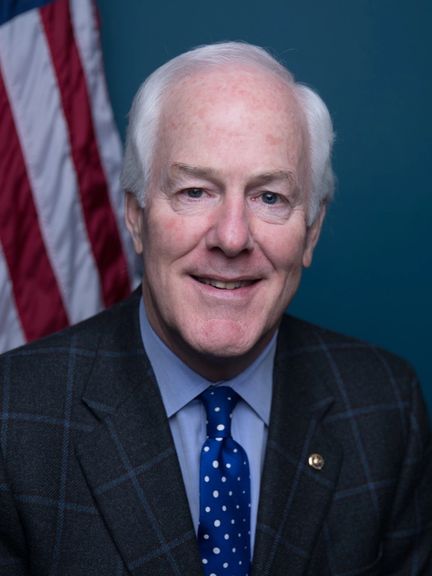
Republican Senator John Cornyn tells Iran International that he thinks the Vienna negotiations to revive the 2015 nuclear deal is “fundamentally flawed”.
He said on Wednesday that “any negotiation that stops short of preventing Iran from getting a nuclear weapon is fundamentally flawed.”
He added, "They haven't been talking to people in Israel or other allies of US that are worried about Iranian regime's threat both in terms of financing state terror as well as prospect of getting a nuke weapon and using that against our allies in Mideast".
He expressed doubt that the talks will lead to any tangible results, saying, “I don't have any confidence in the process right now”.
The nuclear talks have stalled mainly because of Iran’s demand for the US to remove the Revolutionary Guard (IRGC) from its terrorism list (FTO) and the recent missile attacks have shed more doubts whether President Joe Biden’s administration would take such a step.
The indirect US-Iran nuclear talks were close to an agreement in early March before last-minute Russian demands for sweeping guarantees that would have hollowed out sanctions imposed following its invasion of Ukraine derailed the talks.
Russia has since appeared to have narrowed its demands to cover only work linked to the nuclear deal, leaving a small number of issues to be resolved between Washington and Tehran, diplomats say.
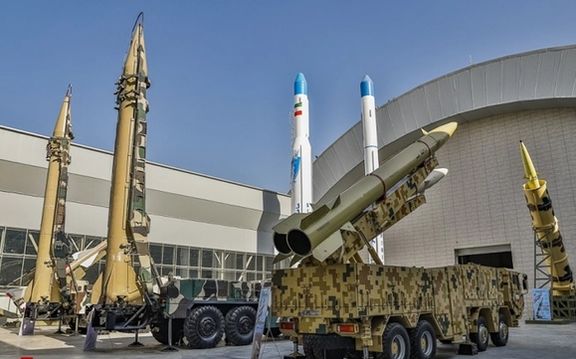
The United States Wednesday imposed sanctions on an Iran-based man and his firms it accused of helping Tehran obtain materials for its ballistic missile program.
Washington’s actions came as one year of nuclear talks have not borne final results and after missile attacks by suspected Iranian-backed proxies on countries in the region.
In a statement the US Treasury Department said it acted after Iran's missile attack on Erbil in Iraq and an "Iranian enabled" Houthi missile attack against a Saudi Aramco facility this month, as well as other missile attacks by Iranian proxies against Saudi Arabia and the United Arab Emirates.
US National security Advisor Jake Sullivan blamed Iran last week for supplying weapons in the large-scale Houthi I attack on Saudi oil installation.
The nuclear talks have stalled mainly because of Iran’s demand for the US to remove the Revolutionary Guard (IRGC) from its terrorism list (FTO) and the recent missile attacks have shed more doubts whether President Joe Biden’s administration would take such a step.
The Treasury said it slapped sanctions on Iranian procurement agent Mohammad Ali Hosseini and a network of companies it accused him of using to procure ballistic missile propellant and related materials in support of Iran’s missile program.
The Treasury accused him of procuring materials for the Islamic Revolutionary Guard Corps (IRGC) unit responsible for research and development of ballistic missiles. Iran's IRGC is subject to U.S. sanctions.
A US official, who spoke on condition of anonymity, said the sanctions were not related to efforts to revive the nuclear deal under which Iran had limited its nuclear program to make it harder to develop a nuclear bomb - an ambition it denies - in return for relief from global economic sanctions.
"While the United States continues to seek Iran’s return to full compliance with the Joint Comprehensive Plan of Action, we will not hesitate to target those who support Iran’s ballistic missile program," the Treasury's Under Secretary for Terrorism and Financial Intelligence Brian Nelson said in the statement.
Iran conducted a March 13 attack on Erbil, the capital of Iraq's northern Kurdish region, a rare publicly declared assault by Iran's Islamic Revolutionary Guards Corps (IRGC), and a missile attack by Yemen's Iran-aligned Houthis hit a Saudi Aramco facility on March 25.
A nascent plan for Iraq's Kurdistan region to supply gas to Turkey and Europe - with Israeli help - is part of what angered Iran into striking Erbil with ballistic missiles this month, Iraqi and Turkish officials say.
The Houthis said they launched attacks on Saudi energy facilities on Friday and the Saudi-led coalition said oil giant Aramco's petroleum products distribution station in Jeddah was hit, causing a fire in two storage tanks but no casualties.
The indirect US-Iran nuclear talks were close to an agreement in early March before last-minute Russian demands for sweeping guarantees that would have hollowed out sanctions imposed following its invasion of Ukraine derailed the talks.
Russia has since appeared to have narrowed its demands to cover only work linked to the nuclear deal, leaving a small number of issues to be resolved between Washington and Tehran, diplomats say.
Reporting by Reuters
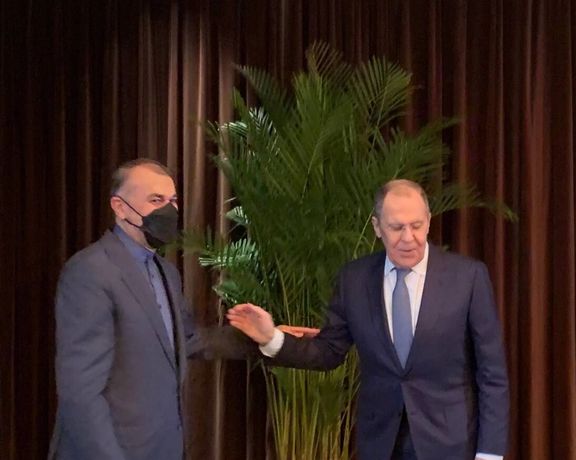
Russian Foreign Minister Sergei Lavrov said Wednesday Moscow would work with Iran to take steps to circumvent Western sanctions, the RIA news agency reported.
Lavrov's remarks came after he met with Iran's foreign minister Hossein Amir-Abdollahian in China on the sidelines of a multilateral meeting between Afghanistan's neighbors.
It was not immediately clear if he was referring to sanctions against Russia exclusively, or also those against Iran.
Lavrov's remark could throw another stumbling block to a nuclear agreement between Iran and the West to revive the Obama-era JCPOA.
Moscow made demands in mid-March to have its relations with Iran exempted from western sanctions imposed after the invasion of Ukraine. At the time, the demand complicated efforts to achieve a deal after 11 months of talks in Vienna.
In addition, Tehran wants the United States to remove its Revolutionary Guard (IRGC) from its list of terrorist groups. Washington has not accepted the demand but has reportedly said it would be contingent on Iran limiting its aggressive actions in the Middle East.
Iran has been highlighting its policy of relying on Russia and China for trade in the face of US sanctions. Iran’s envoy to Russia said last week the two countries are in talks over the possible recognition of the Russian payment system MIR. Iran is cur off from the international banking system SWIFT. Many Russia banks have also been sanctioned.
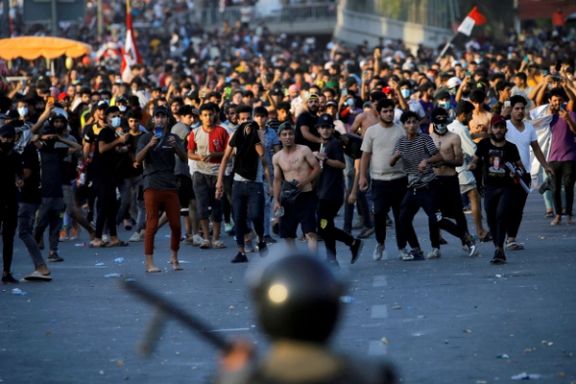
The United States has given another 120-day ‘waiver’ that rules out punitive action against Iraq for importing energy from Iran.
With temperatures in Baghdad already nearing 30 degrees Celsius, officials fear a repeat of last year’s widespread protests over electricity cuts.
“The waiver ensures that Iraq is able to meet its short-term energy needs while it takes steps to reduce its dependence on Iranian energy imports”, an official in the State Department wrote in a statement to Iraq Oil Report quoted Monday.
This is the latest waiver, and latest call from Washington for Iraq to generate its own electricity, since former President Donald Trump in 2018 withdrew from the 2015 Iran nuclear deal with world powers, Joint Comprehensive Plan of Action (JCPOA), and imposed ‘maximum pressure’ sanctions threatening to punish third parties dealing with Iran’s financial sector. Iraq’s leaders have called for renewal of the JCPOA.
Iraq’s electricity outages have increased after years of infrastructural damage in war, sabotage by the Islamic State group (Isis-Daesh), low rainfall reducing hydroelectricity, growing demand, and corruption. The Trump administration shortened its waiver from 120 days to 90 days to cajole Baghdad, but the Biden administration renewed it for 120 days last March, ahead of nuclear talks in Vienna that began April.